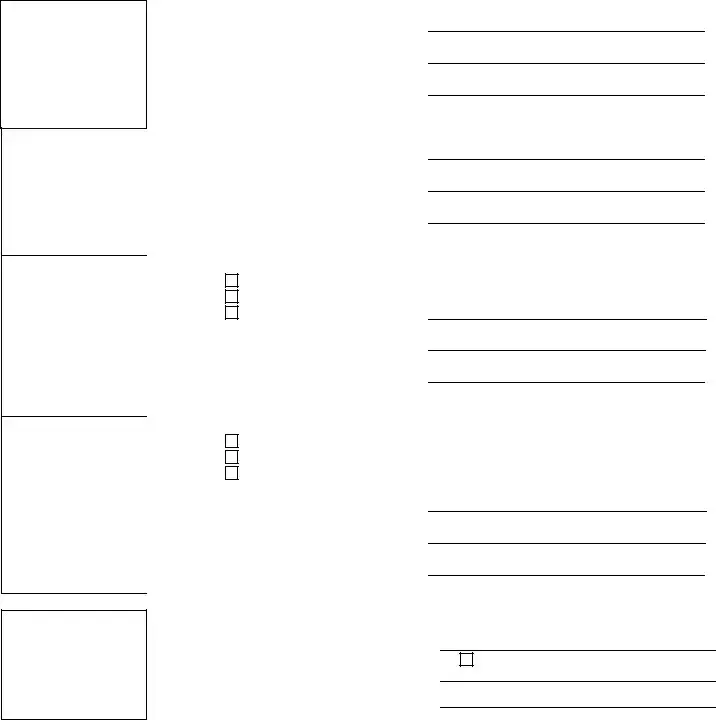The FA-604 form in Wisconsin, which deals with changes in custody, physical placement, support, and maintenance, bears resemblance to various legal documents in its purpose, structure, and application. Here's a closer look at ten such documents and their similarities to the FA-604 form.
Modification of Child Support Order forms found in other states share a core similarity with FA-604. Both are used when circumstances change, necessitating a modification to the financial support arrangement for a child. The specific terms they cover, such as income adjustments and changes in parenting time, underscore this similarity. Like FA-604, these forms are crucial in ensuring that child support arrangements reflect current financial and custodial realities.
Marital Settlement Agreement (MSA) forms, though broader in scope, share elements with the WA-604 form, particularly in detailing the distribution of assets, liabilities, and setting terms for maintenance and custody in the event of a divorce or separation. Both documents serve to formalize agreements reached between parties in a legally binding manner, often requiring court approval to enact changes to existing agreements or orders.
Parenting Plan forms commonly used in custody cases also share similarities with the FA-604 form, especially in segments detailing physical placement or custody arrangements. Both types of documents focus on the welfare and best interests of children, laying out specific schedules and responsibilities for each parent. They provide a structured framework to manage the upbringing of children following a separation or divorce.
forms are critical in family law cases for disclosing parties' financial standings, similar to sections in the FA-604 that require the declaration of income and expenses. Both documents are essential for calculating maintenance, child support, and ensuring that financial orders are fair and based on accurate, up-to-date information.
Stipulation to Modify custody or support orders, much like the FA-604, are agreements between parties to alter existing orders or arrangements. These stipulations, once approved by a court, become binding orders. The process emphasizes cooperation between parties to reach mutually acceptable adjustments in response to changed circumstances.
Order to Show Cause for Modification forms initiate a legal process to change court orders, mirroring the overarching goal of the FA-604 to modify custody, placement, or support terms. Both seek to present reasons for the requested change, encouraging judicial review and approval based on new evidence or circumstances.
Request for Family Support forms, while focusing specifically on maintenance and support aspects, align with the sections of the FA-604 dedicated to adjusting financial support arrangements. They both play a vital role in ensuring that financial support provided to a child or former spouse is reflective of the current financial capabilities of the paying party.
Legal Custody Agreement forms detail decisions about a child's upbringing, including education, health care, and religion, similar to the legal custody component in the FA-604. Alterations to legal custody reflect significant changes in family dynamics, requiring a formal legal process to ensure the child's interests are paramount.
Child Custody and Visitation Order modifications, akin to FA-604's physical placement changes, provide a framework for amending where and with whom a child lives, as well as how parents will share time with the child. These modifications are critical when circumstances such as relocation or changes in parental availability occur.
Notice of Motion to Modify child support, custody, or maintenance orders are procedural documents that, like the FA-604, act as precursors to altering existing legal orders. They serve to formally notify all parties and the court of the intent to seek modifications based on changed conditions, initiating the legal process required for such changes.
Each of these forms, while serving specific functions, shares the common purpose of the FA-604: to facilitate legal adjustments in response to life's evolving circumstances, ensuring arrangements regarding custody, placement, and support are fair, equitable, and reflective of current situations.
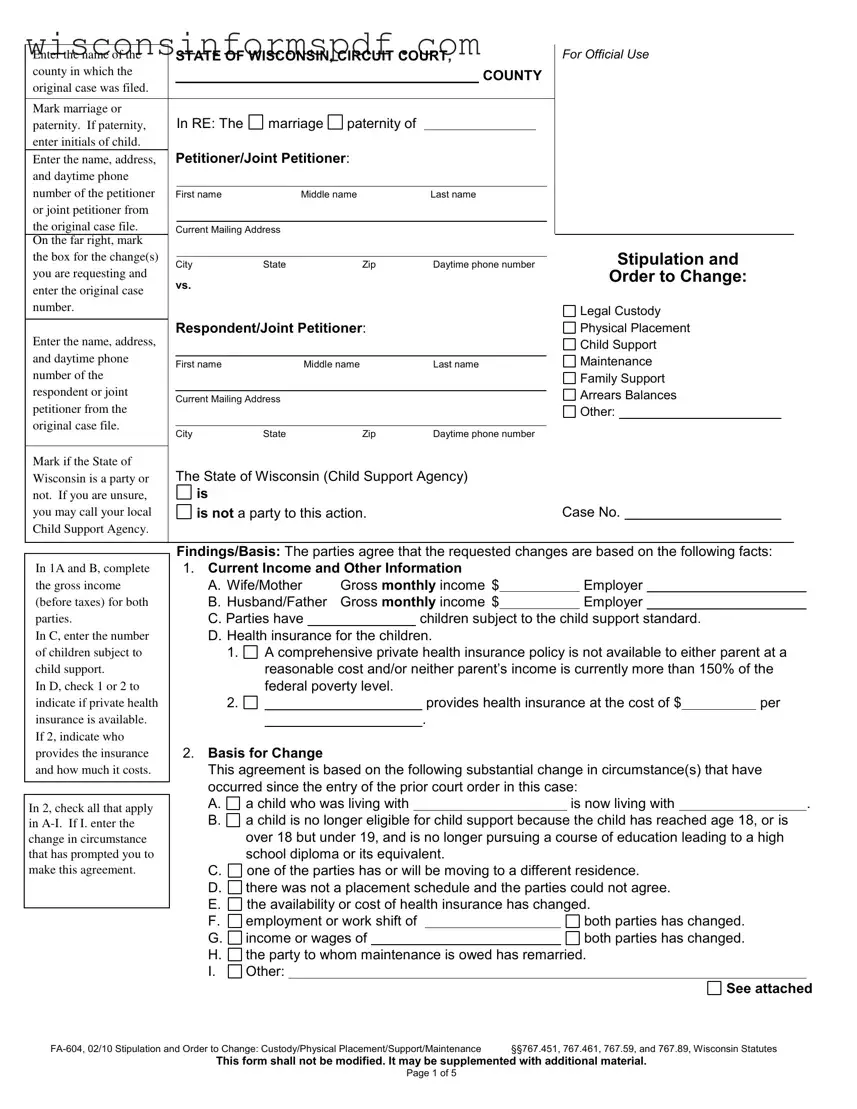

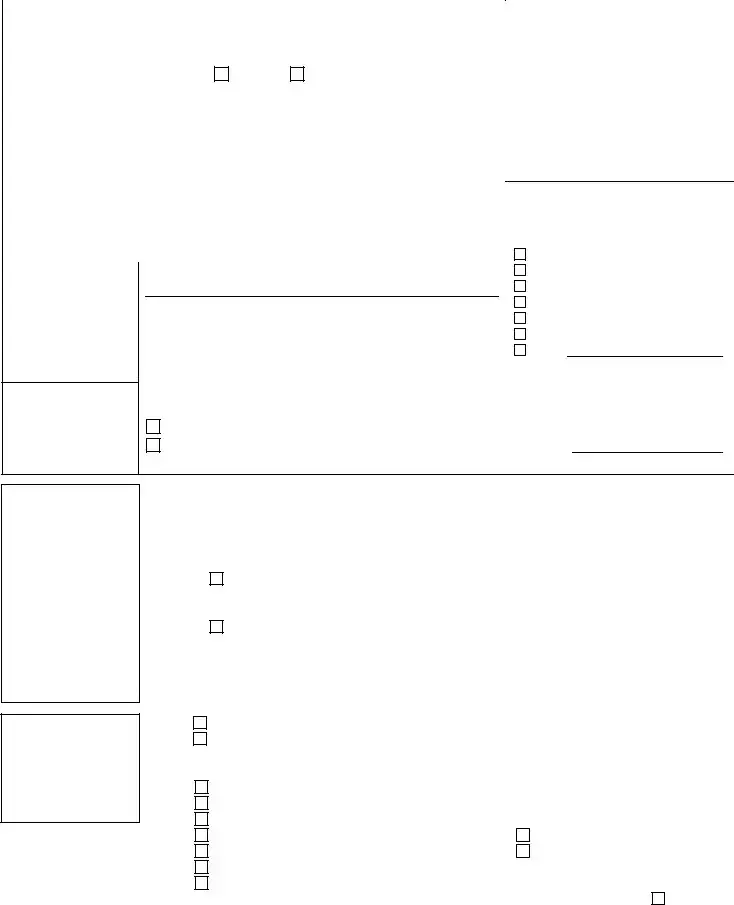
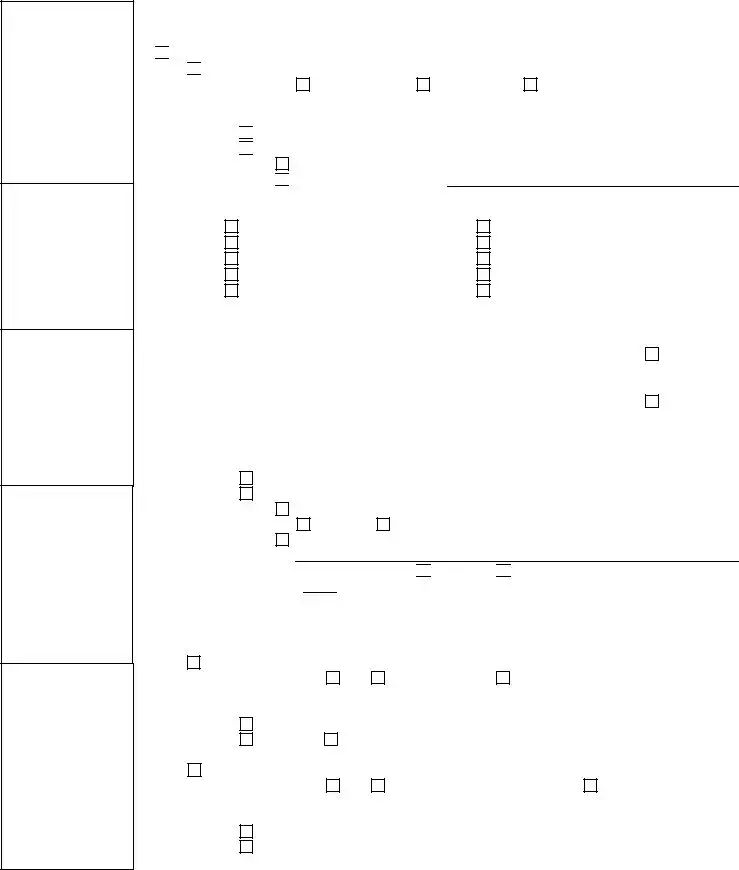

 Modify Current Financial Order(s)
Modify Current Financial Order(s) 
 Child Support
Child Support
 did not deviate from the percentage standard for any reason.
did not deviate from the percentage standard for any reason.
 did deviate from the percentage standard when it was set because:
did deviate from the percentage standard when it was set because:
 Other reasons as follows:
Other reasons as follows:
 increases
increases 
 decreases the standard amount by
decreases the standard amount by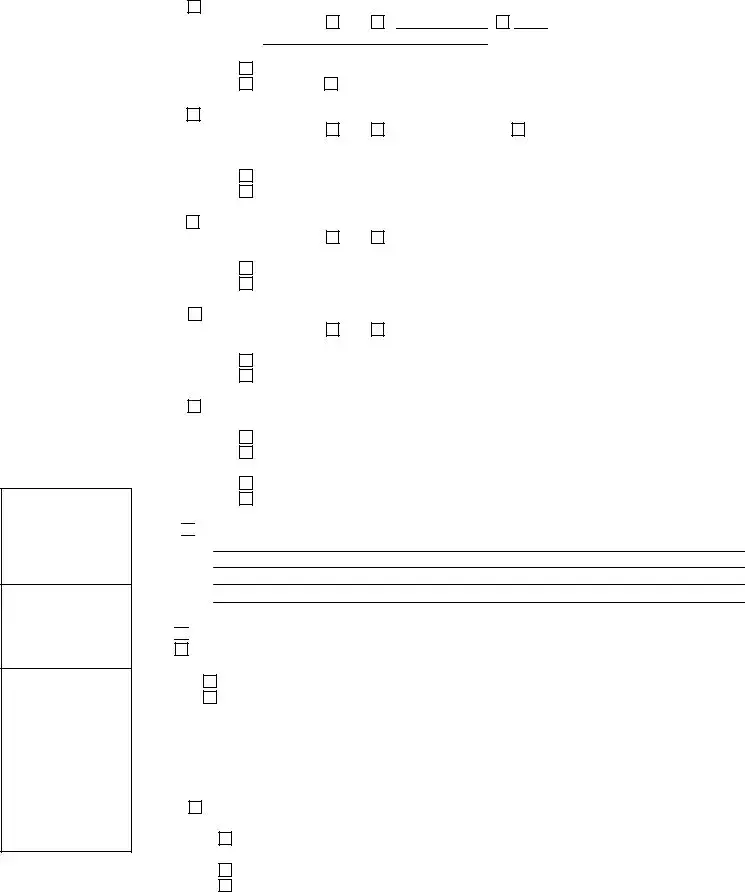

 Other Financial changes as follows:
Other Financial changes as follows:
 no payments are ordered.
no payments are ordered.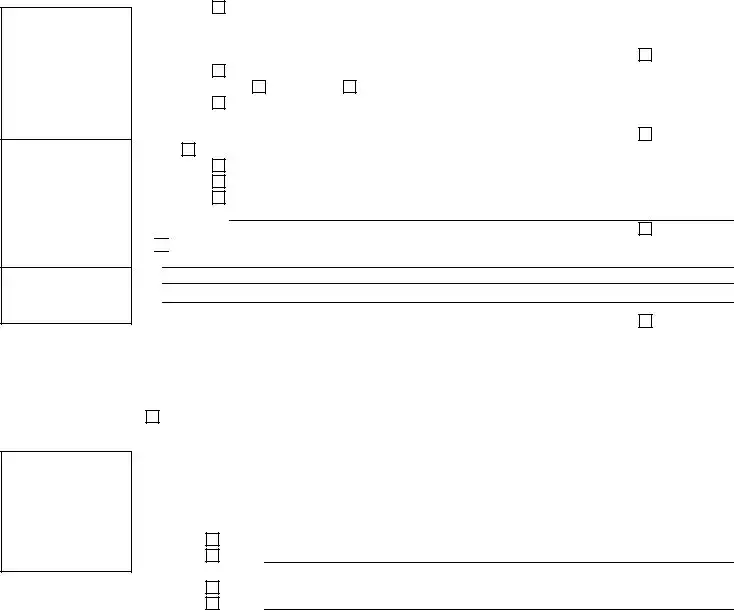

 Additional changes
Additional changes 